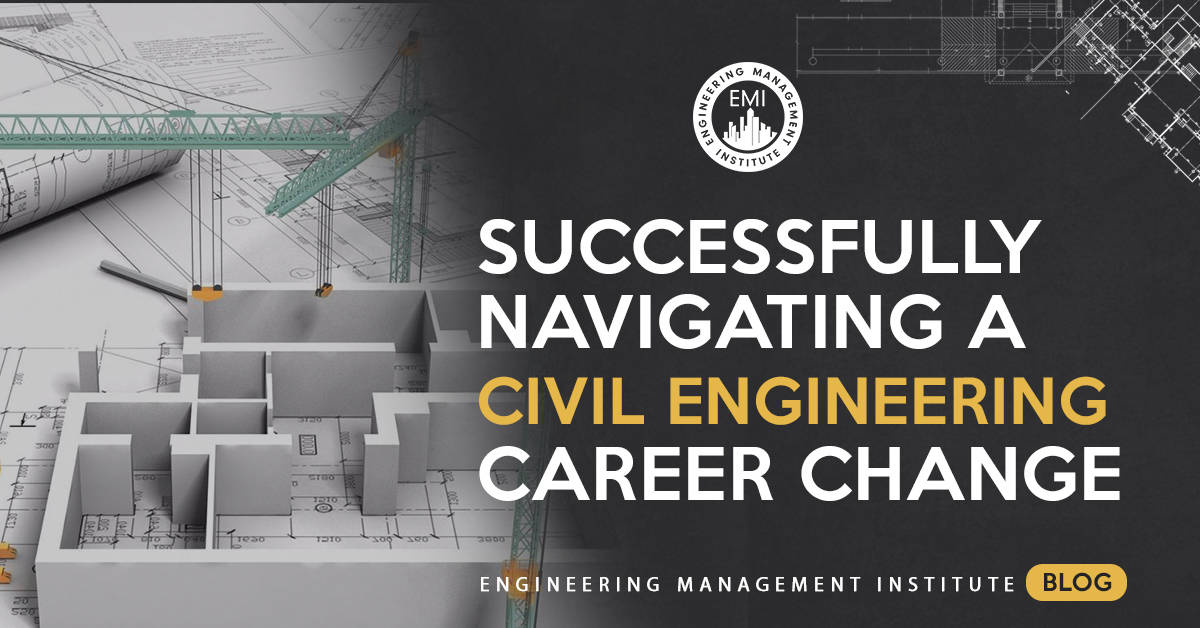This is a guest blog by Nick Heim, P.E.
Change is not easy, especially when it is such a large part of your every day and life in general. Taking on a new position or responsibilities can be overwhelming, but there are a few things that one can do to ease the transition. Today, I would like to talk about career changes — and how to make the most of them in your civil engineering career.
1. Seek First to Understand
When you are new to an organization, everything is exciting. Whether it be meeting new people, increased responsibility, or process improvement, there are many opportunities to show what you know and establish a reputation as someone who is motivated to help the firm succeed. Before all of this, however, comes something much more important: understanding.
Just like the classic airplane announcement about oxygen masks, you must help yourself before helping anyone else by understanding how your new firm got into its current state. It is easy to throw out ideas and make suggestions. It is harder to be patient, ask questions, and observe how things currently are. Your idea or suggestion may have been tried before and not succeeded for a logical but not obvious reason, or it may be a great idea that no one has thought of. Either way, you will be more respected and increase the odds of having your idea implemented by coming from this point of view.
2. Be a Sponge
If you are transitioning into a firm that specializes in work you have previously done, you will likely hear about topics that you already have some background knowledge on. If this is the case, I would encourage you to be receptive to “old” information for two reasons. The first reason is that the information may be relayed to you in a different way — a way that triggers a different level of understanding. This could lead to newly found efficiencies and process improvements, maybe even changing the way you have done something for a long time.
The second reason has to do with relationship building. If you take the time to listen to and understand someone who is taking the time to teach you, your relationship with that individual is likely to improve at a faster rate. People generally support others who are humble and willing to listen and learn. There are, of course, times during a career transition to show what you know with confidence, but there is little downside to absorbing knowledge like a sponge.
3. Seek Consistent Feedback and Communication
The best way to continue to meet expectations and stay on the same page as everyone else is … to never fall off it! I recommend scheduling weekly or twice monthly one-on-ones with the key individuals on your team, including your direct supervisor/manager, your mentor, and any peers you are closely working with on projects. The purpose of these meetings is to ensure that expectations are being met, adjust plans and courses of actions if needed, and, most importantly, continue to build relationships with those close to you. By bringing up topics of discussion on a weekly basis, it is more difficult for things to slip through the cracks, go unnoticed, or otherwise cause issues.
In summary:
- Seek first to understand before trying to drive any sort of change.
- Be a sponge — old information displayed in a new way can lead to tremendous results.
- Seek consistent feedback and communication to resolve issues while they are minor.
About the Author, Nick Heim, P.E.

I hope you enjoyed this week’s post by guest author Nick Heim, P.E. If you’re interested in your firm possibly joining the Civil Engineering Collective, please contact us here or call us at 800-920-4007.
I hope you’ll join us.
Anthony Fasano, P.E.
Engineering Management Institute
Author of Engineer Your Own Success







